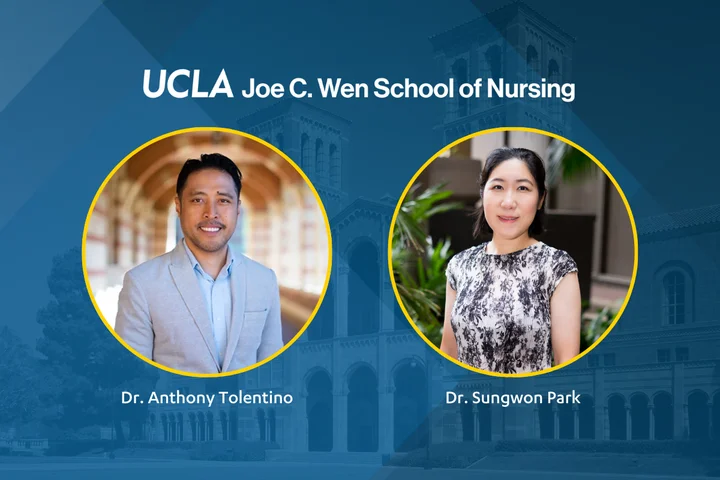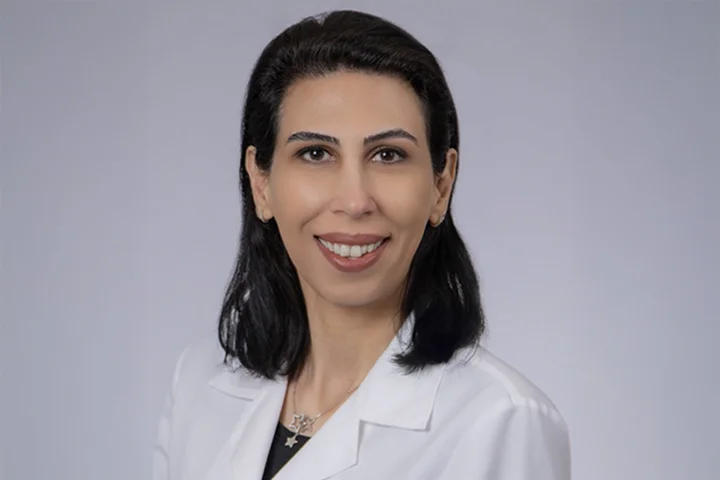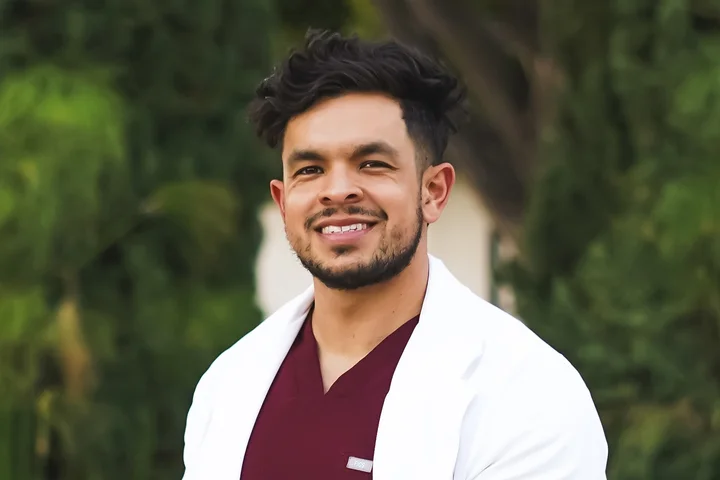Transdisciplinary collaboration supports wellbeing and biliteracy among West Los Angeles’ Hispanic community
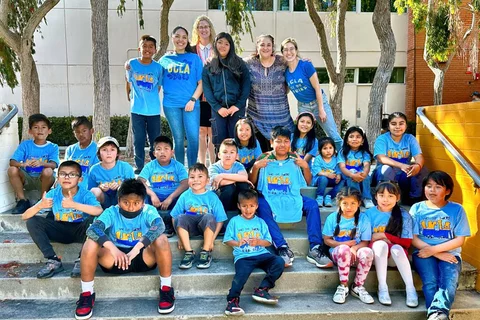
When they were presented with t-shirts bearing the name and emblem of the program they helped design, the 8-to-12-year-olds squealed with delight and pride. “What we created is on a shirt? That’s so awesome!”
The children received their shirts at the conclusion of a community-engaged health and literacy project funded by a UCLA Transdisciplinary Research Acceleration (TRAG) Grant shepherded by the collaborative efforts of researchers from three UCLA departments: Inmaculada Maria Garcia-Sanchez, PhD, professor in the School of Education and Information Studies, Kristi Westphaln, PhD, RN, CPNP-CP, assistant professor in the School of Nursing, and Jocelyn Meza, PhD, assistant professor in the Psychiatry and Biobehavioral Sciences department in the David Geffen School of Medicine.
“We came together in our desire to assist youth of immigrant origin in our local community,” says Westphaln.
The three researchers were concerned about children’s decreased mental wellness and increased exposure to racial or ethnic discrimination following the pandemic. They noted how the US Surgeon General’s Advisory highlighted the importance of implementing multilingual, culturally responsive services to address the needs of children and their families, particularly those who have experienced poverty, racism, or other adversities.
Garcia-Sanchez, Westphaln, and Meza chose to focus on a pilot project in West Los Angeles, home to a large community of immigrants from southern Mexico. “We aimed to engage in a process of curriculum building with the children and the community … to strengthen the children’s health, emotional wellbeing, and biliteracy skills,” says Garcia Sanchez.
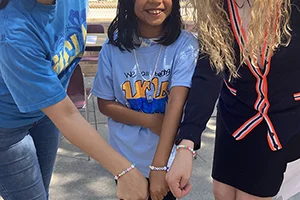
The process involved many steps. First, the researchers distributed bilingual flyers throughout the community to recruit participants. They also held multiple community gatherings to engage community members and learn about their priorities. The West Los Angeles Library was identified as a trusted community resource and became the location of meetings and the program itself. Parents, librarians, local school principals, and teachers formed a Community Advisory Board (CAB). With the UCLA research team’s support, the CAB and the children determined the topic and focus of the program.
The UCLA team knew they wanted to incorporate story-making and storytelling. Beyond that, they wanted the participants, rather than themselves, to take the lead. “It wasn’t us dictating, ‘This is what we want to do,’” said Westphaln. “We created a structure to allow the community members to take the lead and decide what was of utmost importance for developing a program.”
The result was an eight-week after-school program focusing on a healthy, sustainable community. Children came to the library one afternoon per week to participate in such activities as creating clay pictures of themselves, engaging in mindfulness activities such as breathing techniques, and hearing and creating stories. “As the children became storytellers, they expressed an incredible critical awareness of different structural inequalities, including health inequities in their communities,” says Garcia Sanchez, a linguistic and educational anthropologist.
The children had to reach a consensus on the program's name and design a logo. They chose “UCLA Kidz Club,” using the “Z” to allude to the zines they created at the conclusion of the program. “The kids really felt empowered,” says Meza, a child and adolescent clinical psychologist. “They chose a graffiti-like font because it looked like some of the things they see in their neighborhood.”
One session invited the children to handle and role-play with health paraphernalia such as stethoscopes, Covid test kits, and a vest with Velcro organs. Westphaln notes that children may not be comfortable enough to ask questions or share concerns during a brief 20-minute well-child primary health care visit whereas this type of setting invites them to be more open.
Westphaln’s clinical activities and Meza’s mindfulness and emotional well-being exercises gave the children a vocabulary for and awareness of these subjects, Garcia-Sanchez says. In addition, interacting with Hispanic UCLA students including Francisco “Frankie” Rodriguez, Darwin Hernandez, and Sandy Honig gave the children the message that people who look like them go to college and succeed, according to Westphaln. The program included a field trip to UCLA to give participants a sense of belongingness on a college campus.
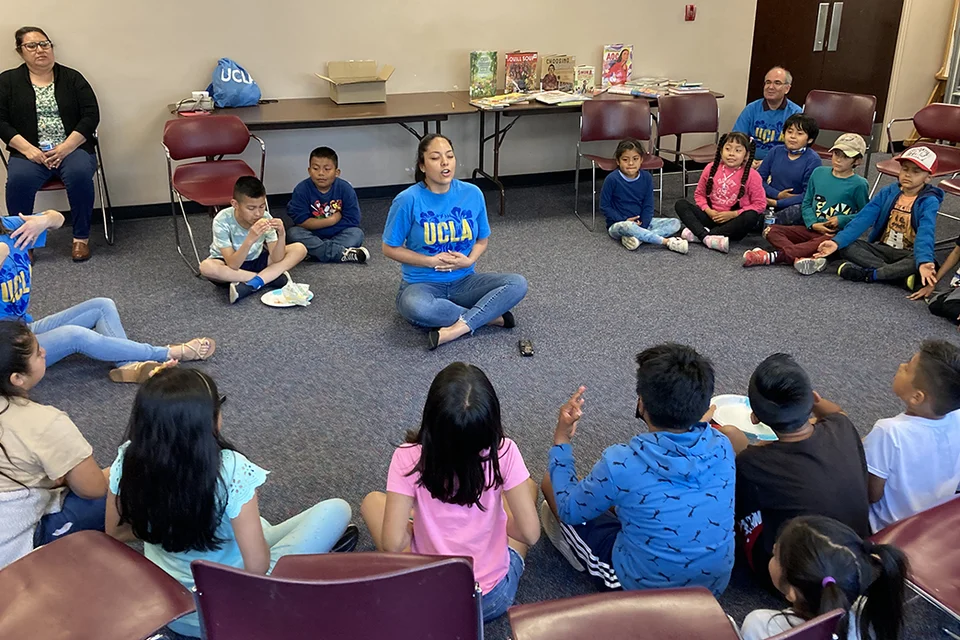
The three researchers consider this pilot project a foundation to build upon as they continue to work with this community. For example, children and parents expressed a desire to engage in some sort of activism, such as writing letters or other things to raise awareness of issues affecting the community in the future.
Meza notes that the collaborative process endured throughout the program. “Our partnership with the library, parents, and community empowered those groups. And as we move into the data analysis portion, we will involve them in helping us interpret our findings.”
Nursing students benefit by engaging in projects within communities and operating from a strength-based, rather than an illness-based framework, says Westphaln. She acknowledges that this type of engagement is time-consuming but believes it’s worth the effort.
“We need more research to be done this way,” she says. Rather than saying, “I am the researcher and I’m going to do research on you,” we need to say, “I am here with research training. And the work that we do, we do together.”

